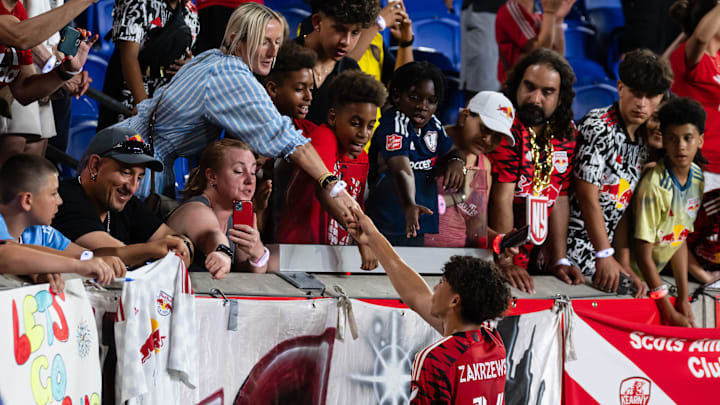It's amazing how the passion for soccer can stir such extreme emotions. Major League Soccer (MLS) is a constant target of criticism, not just for on-field performance but also for the behavior of its fans off the field. And without a doubt, Brazilians top the list of the biggest haters of the soccer ecosystem in the United States. It’s almost a mortal sin for Brazilians to accept that Americans might prefer the NBA, MLB, and NFL over soccer, which they treat as a religion.
Even though soccer has grown considerably in the United States over the past three decades, the criticism hasn’t stopped. For many, MLS will never be good enough. This insistence on belittling American soccer seems, at times, more like an excuse to fuel old prejudices rather than a fair assessment of the current scene.
Follow MLS Multiplex on X (Twitter).
Talking to friends and colleagues in the press from other countries, the story is the same: MLS isn’t taken seriously. But is this view fair? Or is there something deeper in this judgment?
I get the impression that many foreigners, deep down, root against MLS teams or the US national team (USMNT) just to justify their own prejudice against soccer in the USA. It’s almost as if American failure in this sport is a reason to celebrate, a chance to vent all the frustration accumulated on social media.
What many don’t realize is that Americans have a very healthy relationship with sports. For them, soccer is just another option on a vast sports menu. In the United States, sports are encouraged from an early age, integrated into education, transforming lives, and creating opportunities. Here, sports and education go hand in hand, something many countries, including Brazil, could learn from.
If there's one thing I admire about Americans, it's the way they treat soccer. Going to the stadium is a family activity, a weekend outing where friends gather for a barbecue in the parking lot before watching the game. And if the team loses? It's part of the game. There’s no despair, no violence. It’s a simple yet powerful concept: sports are entertainment, a form of leisure, not a matter of life or death.

On the other hand, in Brazil, the situation is very different. If a team is in a bad phase, it's a reason for fans to go wild. Violence, threats against players, and excessive demands are normalized by the press and society. This unbridled passion often crosses the limits of common sense. It's extremely dangerous for families, children, and the elderly to frequently attend stadiums due to the rampant fan violence based on the match outcome.
Imagine if Brazilians demanded accountability from their politicians with the same intensity they do from their soccer players! Just think! If they treated the wrong decisions of their leaders with the same indignation they show when a team loses a game, maybe the country would be in a much better situation.
And this obsession with soccer isn't exclusive to Brazilians. In many countries, soccer gets more attention than genuinely crucial issues like health, safety, education, and the economy. Meanwhile, Americans are criticized for focusing on what really matters and treating soccer, and even other sports, as mere entertainment.
The growth of soccer in the United States is undeniable, and MLS has evolved significantly. However, the criticism continues. Maybe it’s time for these critics to rethink their concepts and learn from the balanced way Americans handle sports. After all, sports should be fun, a healthy passion.
So, next time someone criticizes soccer in the United States, it’s worth reflecting on whether that opinion is rooted in old prejudices and a distorted view of what sports should represent.
